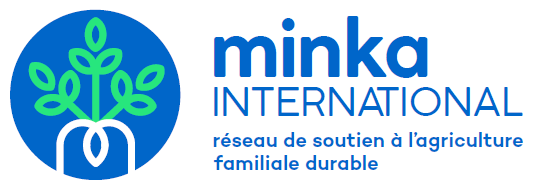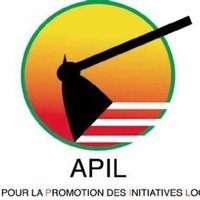WHAT IS APIL?
Its acronym stands for Action pour la Promotion des Initiatives Locales. Apil is a Burkinabe NGO, headquartered in Ouagadougou, and created in 1998 to address major societal problems affecting Burkina Faso such as poverty, food insecurity, education training, etc. The organisation works to contribute to the socio-economic development of rural populations. APIL believes that investment in human capital can improve and sustain productivity, innovation and employability.
WHAT DOES APIL DO?
One of the main focuses of the NGO is to strengthen sustainable food systems by focusing on systems that approach the complete food cycle, from the place of production to the place where food is consumed and disposed, considering the links between different stages.
Beneficiaries: APIL supports more than 13,000 beneficiaries, 72% of whom are women, working in a variety of fields but always related to agriculture; sustainable agriculture, market gardening, beekeeping, human rights education, environmental education, access to land for women, risk prevention and management, natural disasters and social inclusion.
AND MORE CONCRETELY?
In education, APIL created 140 literacy centres, enabling 3,920 producers to learn how to read, write and calculate. In agro-ecology, 3,400 hectares of cultivable land were developed for the benefit of 2,110 producers. In support of women, 255 socio-economic projects revolving around the themes of sheep fattening, market gardening, small-scale trade or handicrafts, were financed by APIL and made it possible to improve the living conditions of women and their households. In agriculture, 680 hectares of land have been developed with water distribution circuits for market gardening and rice growing, 217.7 tonnes of seeds have been distributed and a gross income of XOF 13 billion has been generated for 3,824 market gardeners. In equipment, 15,985 farmers (all sectors) were supported by APIL for a production of 4,440.99 tonnes. In animal husbandry, 6,800 small ruminants, 1,200 breeding bulls and 3,000 sheepfolds have been granted. In beekeeping, 12,000 hives were installed and 24,000 male and female beekeepers benefited from capacity building. In terms of access to water, 7 boreholes have been constructed for rural communities. In terms of economic units, 3 units, including one for tomatoes, one for groundnuts and one for millet flour, have been set up, as well as 4 storage warehouses and 3 onion canneries
WHERE DOES APIL ACT?
Burkina Faso (Central plateau – North central – Central)
WHAT IS THE SITUATION IN BURKINA FASO?
In Burkina Faso, the security context is constantly deteriorating, and the population is regularly hit by jihadist attacks and suffers from ethnic clashes and banditry. This security instability has led to an estimated 950,000 internally displaced persons (IDPs) being forcibly displaced. There is therefore a huge challenge to the sustainable integration of these populations in the host regions and communities. APIL provides comprehensive assistance to these communities (primary emergency aid, conflict management, support for the development of income-generating activities, etc.). APIL also works to address risks and to help local communities develop appropriate governance processes to protect development progress and public and private investments against the risks of shocks. In concrete terms, the organisation strengthens social cohesion and peace, and supports the capital of producers by providing seed kits and tools, the capital of small-scale livestock breeders and supports the management of rural IGAs (Income Generating Activities).
Site web : https://www.apilaction.net/
Siège : Burkina Faso
Pays d'action : Burkina Faso
Actions : Strengthening the sustainable food system

